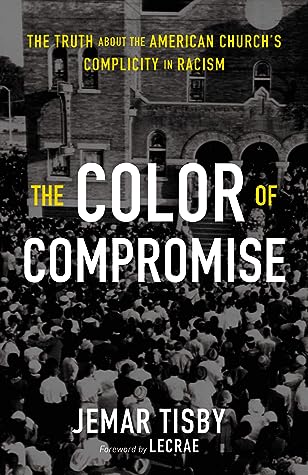More on this book
Community
Kindle Notes & Highlights
by
Jemar Tisby
Read between
January 14 - January 30, 2021
The refusal to act in the midst of injustice is itself an act of injustice. Indifference to oppression perpetuates oppression.
Edwards and Whitefield represent a supposedly moderate and widespread view of slavery. Both accepted the spiritual equality of black and white people. Both preached the message of salvation to all. Yet their concern for African slaves did not extend to advocating for physical emancipation. Like these two preachers, many other Christians did not see anything in the Bible that forbade slavery. In fact, the Scriptures seemed to accept slavery as an established reality. Instead, white Christians believed that the Bible merely regulated slavery in order to mitigate its most brutal abuses.
The combatants knew what the stakes were. Even if there were additional disputed issues, such as the extent of federal versus state power, the future of slavery in America was paramount. Only after the war, when southerners and their sympathizers sought to give reasons for the Confederacy’s defeat, was slavery’s relevance to the war partially obscured.
During a series of political debates against Stephen Douglas in Illinois in 1858, Lincoln carefully explained, “I am not nor have I ever been in favor of bringing about in any way the social and political equality of the white and black races.”
The doctrine of the spirituality of the church has continued to influence the church in America, even to the present. Its adherents are diverse and often selective in how they apply the doctrine. The injunction against church involvement in policy issues was not upheld for the temperance movement, debates on evolution, attempts to keep prayer in schools, or discussions on how to overturn Roe v. Wade. Historically, the doctrine of the spirituality of the church tends to be most strenuously invoked when Christians speak out against white supremacy and racism.29 Whenever issues like slavery and,
...more
Despite President Johnson’s opposition and the timidity of many moderates, the Radical Republicans managed to pass three constitutional amendments that afforded black people unprecedented status in America. The Emancipation Proclamation issued by President Lincoln on January 1, 1863, only applied to a limited number of slaves. It freed enslaved persons in states that had seceded but not in the slaveholding border states that had sided with the Union. Even in the Confederate states, the proclamation did not apply to areas that had already succumbed to Union forces. Further, the effectiveness of
...more
To date, North Carolina has over 140 Confederate monuments scattered in various public spaces. Texas has nearly 180 such pieces, and there are hundreds of others found in both northern and southern states. Tellingly, most of these monuments were erected several decades after the Civil War. There was a significant spike in monument construction from 1900 to the 1920s and a second explosion of Confederate flags and iconography from the 1950s to the 1960s.
By contrast, when we look at Billy Graham and the moderate Christians he represented, we see they took a more subdued stance toward the Civil Rights Act. Graham helped start and was intimately involved with the publication of Christianity Today, the de facto voice of white evangelicalism. The magazine refused to endorse the act, largely because it was not in keeping with the magazine’s evangelical belief that social change came best through personal conversion.
Graham did not “walk with protestors or call for open housing or desegregated churches” because “he’s too busy praying.”26 While Graham did not denounce the civil rights legislation, he did not put forth much effort to commend it either.
Some of the more “radical” elements of King’s message—which included democratic socialism, ending the war in Vietnam, nuclear de-escalation, a Poor People’s Campaign to force the federal government to address systemic poverty, and support of a sanitation workers’ strike in Memphis when he was killed—have largely been omitted from popular American memory. Along with the unpopular elements of King’s and the civil rights movement’s platform, people have also forgotten how strongly many moderate Christians opposed him.
Since the late 1960s, the American church’s complicity in racism has been less obvious, but it has not required as much effort to maintain. Nowadays, all the American church needs to do in terms of compromise is cooperate with already established and racially unequal social systems.
Christian complicity with racism in the twenty-first century looks different than complicity with racism in the past. It looks like Christians responding to black lives matter with the phrase all lives matter. It looks like Christians consistently supporting a president whose racism has been on display for decades. It looks like Christians telling black people and their allies that their attempts to bring up racial concerns are “divisive.” It looks like conversations on race that focus on individual relationships and are unwilling to discuss systemic solutions. Perhaps Christian complicity in
...more
Black people comprise about 13 percent of the population but hold less than 3 percent of the nation’s total wealth. Even among the richest people, the wealthiest 1 percent of black families have about $1.6 million compared to $12 million for the wealthiest 1 percent of white families.9 The reasons for these gaps include redlining in real estate, denying bank loans to people of color, and higher unemployment rates among black people, just to name a few. These gaps will persist unless a broad-based reform effort takes hold. One facet of these reforms could include reparations.
Joshua liked this


